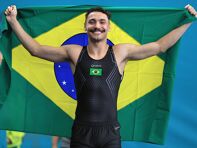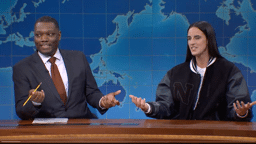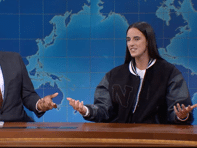(This story was published in 2001).
(Editor’s note: This article was first written in September 2001, and with the release of “United 93” we thought new readers would appreciate it)
Their stories have eerie similarities: Two men in their 30s. Both were from San Francisco. Both were athletes. One saved the life of the President, one saved untold lives during a terrorist attack. Both were gay.
I was struck by the commonalities of Oliver “Billy” Sipple and Mark Bingham, and also by the enormous differences in their stories of bravery and the ensuing reaction. These differences speak of different eras for gay people and show we have made much progress, though hurdles still remain.
By now, many people have heard of Bingham. The tall, athletic 31-year-old public relations executive and rugby player is being credited with helping to bring down the hijacked United Flight 93 over western Pennsylvania on Sept. 11. While we may never know the complete details, he appears to have been among a group of passengers who stormed the cockpit of the plane, causing it to crash into an abandoned strip mine area instead of continuing on to its target: Washington, D.C.
It was a decision totally in character for Bingham, whom I knew somewhat. The University of California grad was a man who loved mixing it up on the rugby or football field and had run with the bulls at Pamplona. This was also a guy who, according to the Daily Californian, “at the Big Game [between Cal and Stanford] in 1992 ran onto the field at halftime and tackled the Stanford tree mascot.” Such a man would not hold back as other passengers decided to make a move. Their collective action may have saved countless lives and proved the ultimate sacrifice.
“An Ordinary American Citizen”
Sipple’s story is long forgotten, but he too performed a heroic act and saved a life. Just ask Gerald Ford.
It was Sept. 22, 1975, and Sipple-a former Marine and high school football star-was at Union Square in San Francisco to catch a glimpse of President Ford, who was on a visit to the city.
Sipple, 33, was standing in the crowd next to would-be assassin Sara Jane Moore, who suddenly pulled out a revolver and fired at Ford, standing about 35 feet away. She missed. Before she could get off a second shot, Sipple grabbed her arm and prevented her from firing. Moore was arrested, and Sipple, a Vietnam veteran, became a national hero. The intense media attention revealed a secret that Sipple had been hiding from his family: He was gay.
The news came out in Herb Caen’s column two days later in the San Francisco Chronicle. Sipple was outed by San Francisco supervisor Harvey Milk, who knew Sipple from their political work together.
“Harvey’s whole attitude was to show people that not everyone who was gay runs around with lipstick, high heels and a dress,” Bob Ross, publisher of the Bay Area Times told the Los Angeles Times. “This was an ordinary American citizen, and he was a gay man.”
Sipple was mortified by the disclosure, which soon received wider publicity. According to a short biography on Random House.com: “A despairing Sipple told reporters: ‘I want you to know that my mother told me today she can’t walk out of her front door because of the press stories.’ He insisted: ‘My sexual orientation has nothing to do with saving the President’s life.’ Apparently President Ford thought it did. There was no invitation to the White House for Sipple, not even a commendation. Milk made a fuss about that. Finally, weeks later, Sipple received a brief note of thanks.”
Sipple’s life went downhill from there. A high school dropout and dyslexic, Sipple had been living on a veteran’s disability for psychological and physical problems resulting from his Vietnam service. He was a heavy drinker and the anxiety caused by the disclosure made him take even more to the bottle. “I have a lot of stress and I take it out on booze,” he said.
He was disowned by his family, with even his own mother refusing to talk to him. When she died in 1979, his “father made it clear that he was not welcome. He could go to the funeral home or the cemetery, but not when his father was there,” the Los Angeles Times reported.
In anguish over the pain caused by the revelations, Sipple filed a $15 million lawsuit against seven major newspapers who had reported he was gay, alleging invasion of privacy. His lawsuit was dismissed after a five-year battle. Sipple’s story is still used as a case study in ethics at journalism schools.
In 1989, Sipple, by now an alcoholic, lived near the Tenderloin area of San Francisco, weighed close to 300 pounds and was in poor health. Sometime in mid-January he laid down on his bed, surrounded by bottles of bourbon and went into a sleep from which he never awoke. His body was not discovered for two more weeks. His funeral was attended by only 30 people. In a letter of condolence sent to Sipple’s friends, former President Ford and his wife wrote: “I strongly regretted the problems that developed for him following this incident.”
A TV Blackout
Like Sipple, Bingham’s homosexuality became widely known in the days following the plane crash. The Washington Post, Los Angeles Times and Sports Illustrated were among publications that mentioned that Bingham helped to found the San Francisco Fog, a gay rugby club. The Post detailed Bingham reconciling his love of rugby with being gay. Tributes to him sprang up on the Internet, and there was no shame or embarrassment in the disclosure, only pride.
In fact, a columnist for the Sydney Morning Herald in Australia wrote two columns mentioning Bingham. “When I mentioned Bingham in my first piece, all I knew was that he was a rugby player,” columnist Peter FitzSimons told Outsports. Finding out about Bingham’s sexual orientation prompted a second column.
“Why do I include all this in a column now? Dunno, precisely,” FitzSimons wrote. “Probably just because, beyond helping to save perhaps thousands of people, it would also be good if Bingham’s death could stand towards what the entire world needs right now — the lessening of hate and bigotry, and the maximizing of friendship and understanding.”
Bingham’s sexual orientation is important, especially in light of the comments by Jerry Falwell and Pat Robertson, where they blamed gays, among other groups, as having had some responsibility for bringing the attacks on America. Falwell and Robertson are to Christianity what the Taliban are to Islam. Americans need to know that gay people- which included the pilot of one of the planes-suffered as much as their fellow citizens.
In the days following the hijacking Bingham’s family and friends have spoken with love, pride and admiration about the type of man Mark was and the legacy he leaves. As for Sipple, his brother George told the Los Angeles Times in 1989 that his brother was proud of what he had done, despite the fallout. “He said somebody will pick up a book and see Oliver Sipple saved President Ford’s life,” George Sipple said.
Congressional leaders have already expressed a desire to award the Freedom Medal to passengers aboard Flight 93, including Bingham. What would Jerry Falwell and Pat Robertson think about that? When our country, and its symbols were attacked, Oliver and Mark got busy to save our citizens. Falwell and Robertson got busy assigning blame to our citizens.
To some in this world, the villains are heroes. And heroes are villains. We know the difference.
Oliver and Mark are heroes.







































